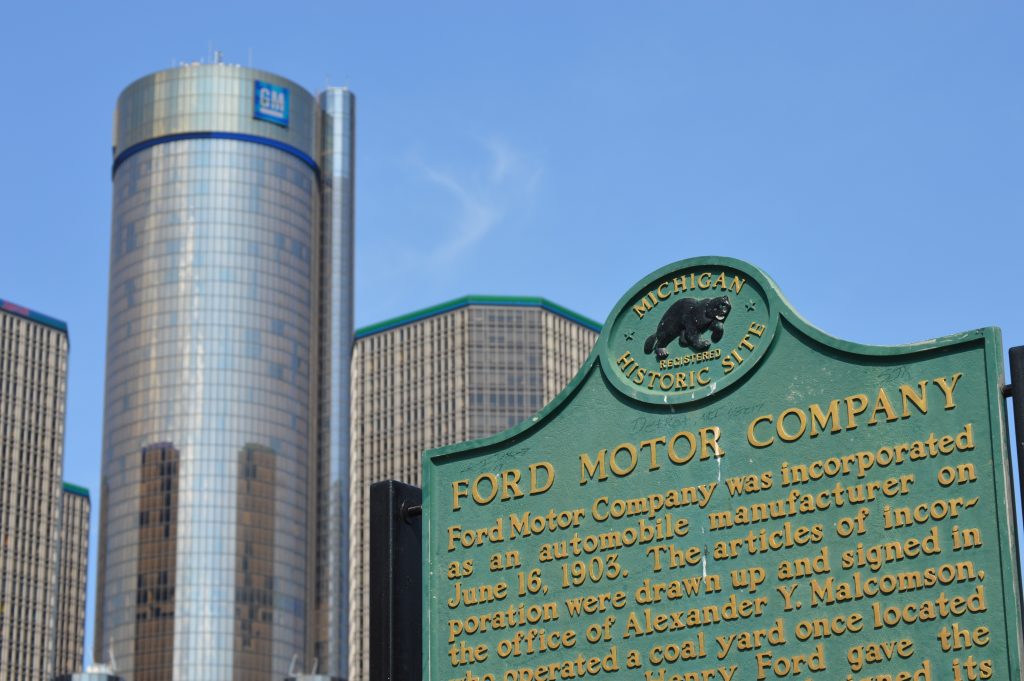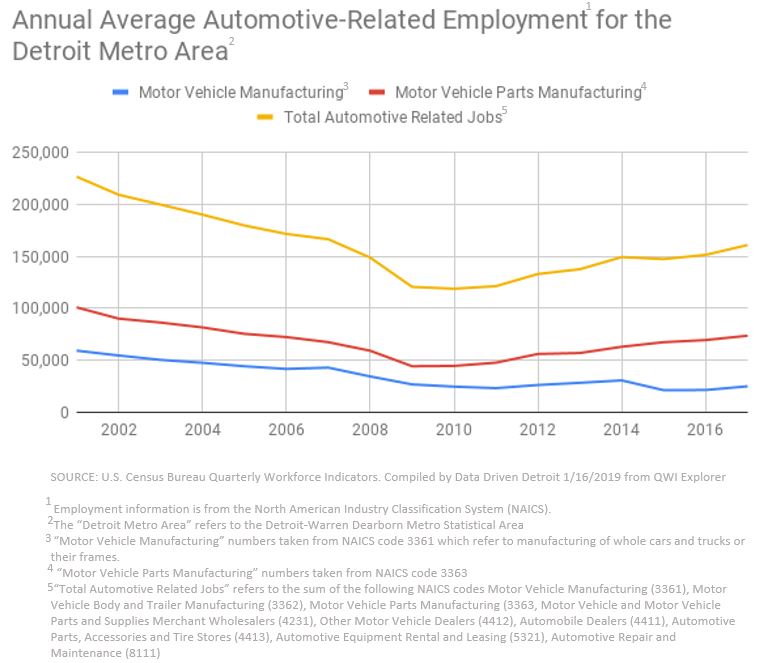Is it Time Detroit Stopped Being the ‘Motor City’?
Has an auto-centric mindset stalled Detroit’s economic development?

Hear WDET’s report by clicking on the audio player above. Ralph Nader, pedestrians on Woodward Avenue, Detroit City Councilmember Scott Benson and others weigh in.
According to U.S. Census Bureau data compiled by Data Driven Detroit and analyzed by WDET, overall auto-related manufacturing in Metro Detroit decreased by about 38% between 2001-2017. This number takes into account manufacturing jobs for whole motor vehicles, frames, bodies, trailers and parts using North American Industry Classification System codes 3361, 3362 and 3363. Manufacturing jobs for people working on whole vehicles and base frames alone decreased by about 58% (see blue line on the graph). Parts manufacturing jobs alone decreased by 27% (see red line).

View a larger image of the graph (right) HERE.
During the same time period, jobs for the entire industry — not just manufacturing, but also wholesale parts sellers; parts, accessories and tire stores; dealers; automotive equipment rental and leasing; and vehicle repair and maintenance — decreased by 29%. However, the yellow line on the graph shows it hasn’t been a steady decline. The numbers bottomed out around 2009, plateaued until about 2011, and have been rising since then, though they still fall short of what they were in 2001.
TABLE: Average Number of Automotive-Related Jobs in the Detroit Metro Area by NAICS Code
Southeast Michigan Council of Governments (SEMCOG) estimates that the region was responsible for about 17 percent of motor vehicle manufacturing jobs in the United States in 2000. In 2015, SEMCOG estimates the region held a smaller share, with about 13% of all motor vehicle manufacturing jobs in the country.
The industry is shifting, however, away from gas-powered motors to “mobility,” a catch-all term for technology innovations in transportation.
Detroit Regional Chamber CEO Sandy Baruah says, “If you look at the automotive industry today, it’s essentially a $3 trillion industry globally. We estimate, and people smarter than us estimate, that tomorrow’s mobility industry is going to be worth about $10 trillion.”
As for the current impact of mobililty on the Detroit region? Baruah says the chamber is conducting research on that. “We’re going to quantify that number in a substantive way later on this year,” he says.
What do you think? Is it time Detroit stop being the Motor City?
Comment below or on the WDET Facebook page.
A longer discussion around this question took place on Detroit Today. You can listen here: Hemorrhaging Jobs. Anemic Auto Show. Are Cars Still in Detroit’s Blood?

